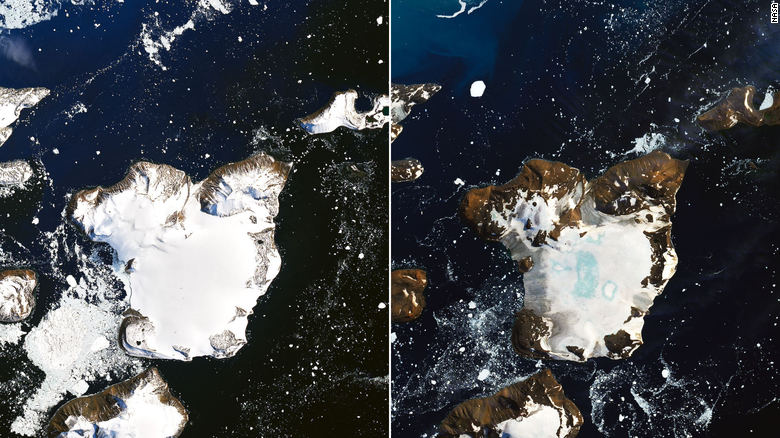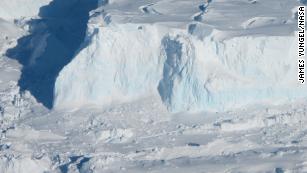“A heat wave in Antarctica melted 20% of an island’s snow in 9 days”

https://edition.cnn.com/2020/02/24/world/antarctica-heat-wave-melt-february-trnd/index.html
A nine-day heat wave scorched Antarctica’s northern tip earlier this month. New NASA images reveal that nearly a quarter of an Antarctic island’s snow cover melted in that time — an increasingly common symptom of the climate crisis.
“New Invention Generates Electricity “Out of Thin Air” – Offers Clean Energy 24/7”

https://phys.org/news/2020-02-green-technology-electricity-thin-air.html
Scientists at the University of Massachusetts Amherst have developed a device that uses a natural protein to create electricity from moisture in the air, a new technology they say could have significant implications for the future of renewable energy, climate change and in the future of medicine.
“How changing aircraft altitude could cut flight’s climate impact in half”

https://edition.cnn.com/travel/article/airplane-contrails-climate-change-science-study/index.html
Greener fuels, electric engines and more efficient aircraft are all being touted as ways to reduce the environmental harm of flying, but a new study suggests one simple move could help existing flights drastically cut their impact. By changing the flying altitude by just couple of thousand feet on fewer than 2% of all scheduled flights, a study by a team of scientists at Imperial College London concludes that aviation’s damage to the climate could be reduced by as much as 59%. It’s all about eradicating airplane contrails — those white streaks you see criss-crossing the skies after an airplane has passed overhead.
“A climate activist swam under the Antarctic ice sheet to prove how quickly glaciers are melting”

https://edition.cnn.com/2020/02/03/world/lewis-pugh-swims-arctic-climate-change-trnd/index.html
Fifty-year-old Lewis Pugh says he was terrified when he plunged into the water of East Antarctica in nothing but swim briefs, a swim cap and goggles. He was even more terrified when he swam below the Antarctic ice sheet, through melting tunnels — though he said it was the most beautiful swim he’s ever done.
“Can Disease-Sniffing Dogs Save the World’s Citrus?”
/https://public-media.si-cdn.com/filer/6a/b4/6ab4b1df-4502-4da0-a3c6-3f634fa8058c/222895.jpg)
https://www.smithsonianmag.com/innovation/can-disease-sniffing-dogs-save-worlds-citrus-180974108/
Now, Gottwald and his colleagues may have a creative new strategy to fill this diagnostic gap—one that relies not on vision, but smell. They’ve taught dogs to recognize the telltale scent of a huanglongbing infection—an odor that eludes the attention of humans, but consistently tickles the super-sensitive schnozz of a mutt. Once trained up, canines can nose out the disease within weeks of infection, trouncing all other available detection methods in both timing and accuracy, the researchers report today in Proceedings of the National Academy of Sciences.
Recent Comments